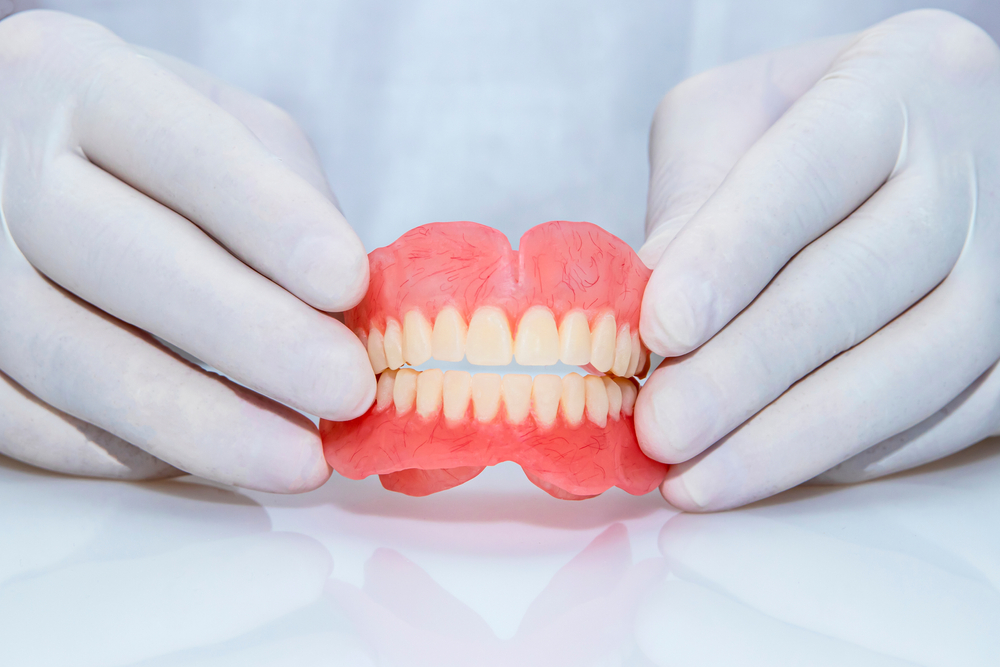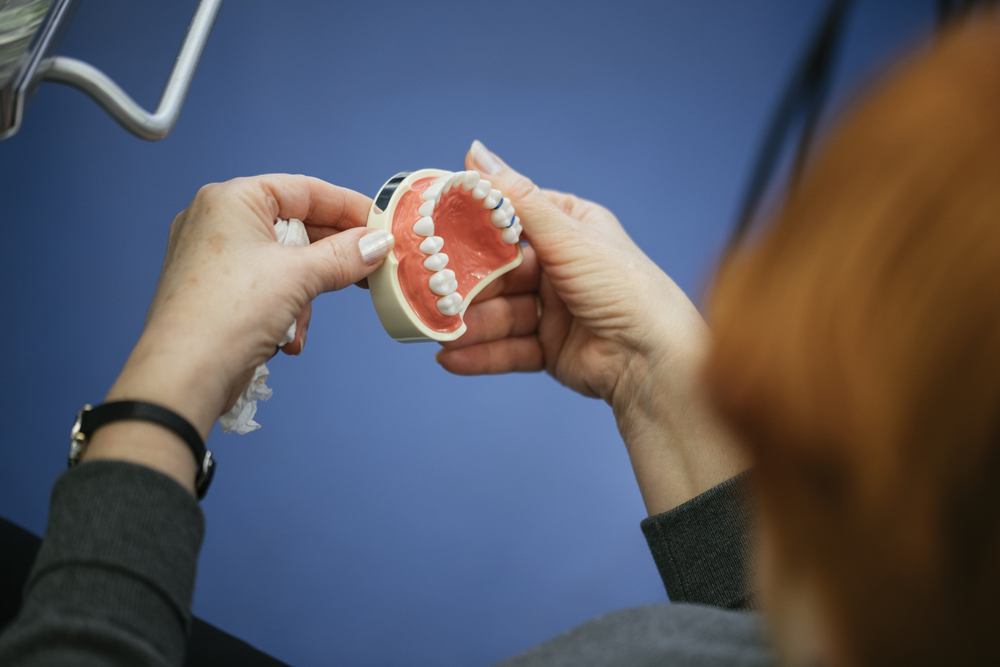
Like all objects, dentures are bound to experience some wear and tear.
High-quality dentures are made of durable materials, and when taken care of correctly, can last for many years. However, as you grow older, you may begin to experience some discomfort with your prosthetics and feel as though they don’t fit quite right anymore.
Whether due to bone loss, accidental breakage, or changes in mouth shape, repairing your dentures to fit correctly again is essential for your oral health.
The good news is that most of these issues can be fixed with a denture relining, saving you the hefty cost of a complete replacement. This procedure is fairly simple and involves reshaping the underside of the appliance so that it fits more comfortably on your gums.
The Types of Denture Relining
When a tooth is completely removed, the bone that supported its root will begin to deteriorate and change the shape of the jaw and gums.

Depending on the sensitivity of your gums and the condition of the denture, your denturist will determine which type of relining is best. The soft relining resin is made of silicone and creates a flexible, more comfortable base for the denture.
While this is the best option for individuals with sensitive gums, the soft material compromises the prosthetics’ durability, resulting in frequent visits to the denturist to get them repaired.
Hard relining is the standard choice for denture repairs. It’s both durable and comfortable to wear unless your gums get irritated easily.
The Relining Procedure
To perform a permanent reline, the denturist will first clean the appliance and then sand down the portion of the denture plate that’s causing discomfort.
After either a soft or hard resin is applied, you’ll be asked to put the denture back in your mouth and bite down gently to make an impression on the new material. Once the resin has hardened the relining process is complete.
Each person will have different experiences with their dentures, though a relining is typically needed every one or two years. However, if you feel your denture no longer fits comfortably, it’s usually a sign that you need a relining.
Sores, irritation, and general discomfort are primary reasons to consider a denture relining. Ill-fitting prosthetics can cause a handful of oral health issues, including lisps, slurs, and eating difficulties. Getting a denture relining is essential in maintaining your oral health and improving your quality of life.
Denture Relining vs. Rebasing: What’s the Difference?

While both repair options use the same impression technique, the amount of material changed in the prosthetic significantly differs.
As mentioned before, denture relining adds resin material to the existing base to make the fit more comfortable. Denture rebasing on the other hand involves replacing nearly all the pink base with entirely new acrylic material.
This procedure is typically used when the dentures have sustained severe damage to the base but the artificial teeth are still in good shape.
Same-Day Denture Relines & Repairs in Ottawa
Have you noticed your dentures becoming loose or falling out mid-sentence?
Though properly taking care of your dentures will reduce the need for frequent repairs, even the best-fitting dentures will become loose over time.
Our expert denturists at Ottawa South Denture Clinic work hard to provide our clients with same-day repairs so that they can get back to living their lives with comfort and confidence.
Get in touch with us to learn more about our denture repair services and book your complimentary consultation today.





